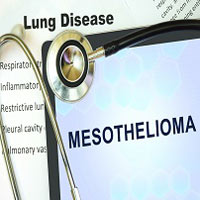
The Rutgers team injected a group of mice with human breast cancer cells and used light-emitting nanoprobes to track the disease’s progress. The microscopic x-ray devices traveled through the bloodstream and helped researchers locate the cancerous cells in the body. The nanoprobes were quickly able to provide accurate images of the disease in early metastasis, capturing minute lesions and tumors just three to five weeks after the injection of the cancer cells.
Nanoparticles Showed Better Results Than MRI
Researchers were impressed with the results, citing the nanoparticles’ potential for real-time cancer detection. The nanoprobes worked much faster than MRIs to track tumor growth. While this technique is still in the preliminary stages of testing, the Rutgers team is optimistic that it could be widely available within five years. Using nanoparticles could enable physicians to detect the presence of cancer months earlier than current technologies, which could dramatically alter the prognosis for patients who may not have been given a fighting chance otherwise.
Detailed, accurate imaging from nanoparticles can also help physicians to navigate treatment. When operating on tumors, surgeons do their best to remove all the infected cells, but often micro metastases remain. By highlighting the tiniest tumors, physicians can determine whether all the cancerous cells are extracted during surgery and intervene quickly to eradicate any that are left in the body.
Faster Diagnosis Could Increase Survival for Mesothelioma Patients
This development is especially good news for patients suffering from rare cancers such as mesothelioma. Mesothelioma infects the lining of the lungs, heart, and chest cavity, and is caused by asbestos exposure. It is notoriously difficult to treat, as it is resistant to many common cancer therapies. This aggressive cancer spreads rapidly, so real-time tracking of its progression could make an enormous difference for patients.
Experts agree that early detection is the key to successfully treating cancer, especially mesothelioma. The disease can lay dormant in the body for 10 to 50 years after the initial asbestos exposure, and because the symptoms mimic other diseases, it is often not diagnosed until it is too late. Often, patients are left with a survival time of one year or less.
Philadelphia Mesothelioma Lawyers at Shein Law Advocate for Mesothelioma Victims
If you or a loved one has been diagnosed with mesothelioma, call the Philadelphia mesothelioma lawyers at Shein Law. Our knowledgeable, experienced legal team will thoroughly review the facts of your case to determine who is responsible for your asbestos exposure and hold them accountable. We are committed to obtaining the compensation you deserve so that you can focus on your recovery. With offices conveniently located in Philadelphia, Pennsylvania and Pennsauken, New Jersey, we help asbestos exposure victims throughout the surrounding areas. Call us today at 877-SHEINLAW or contact us online for an initial consultation.
